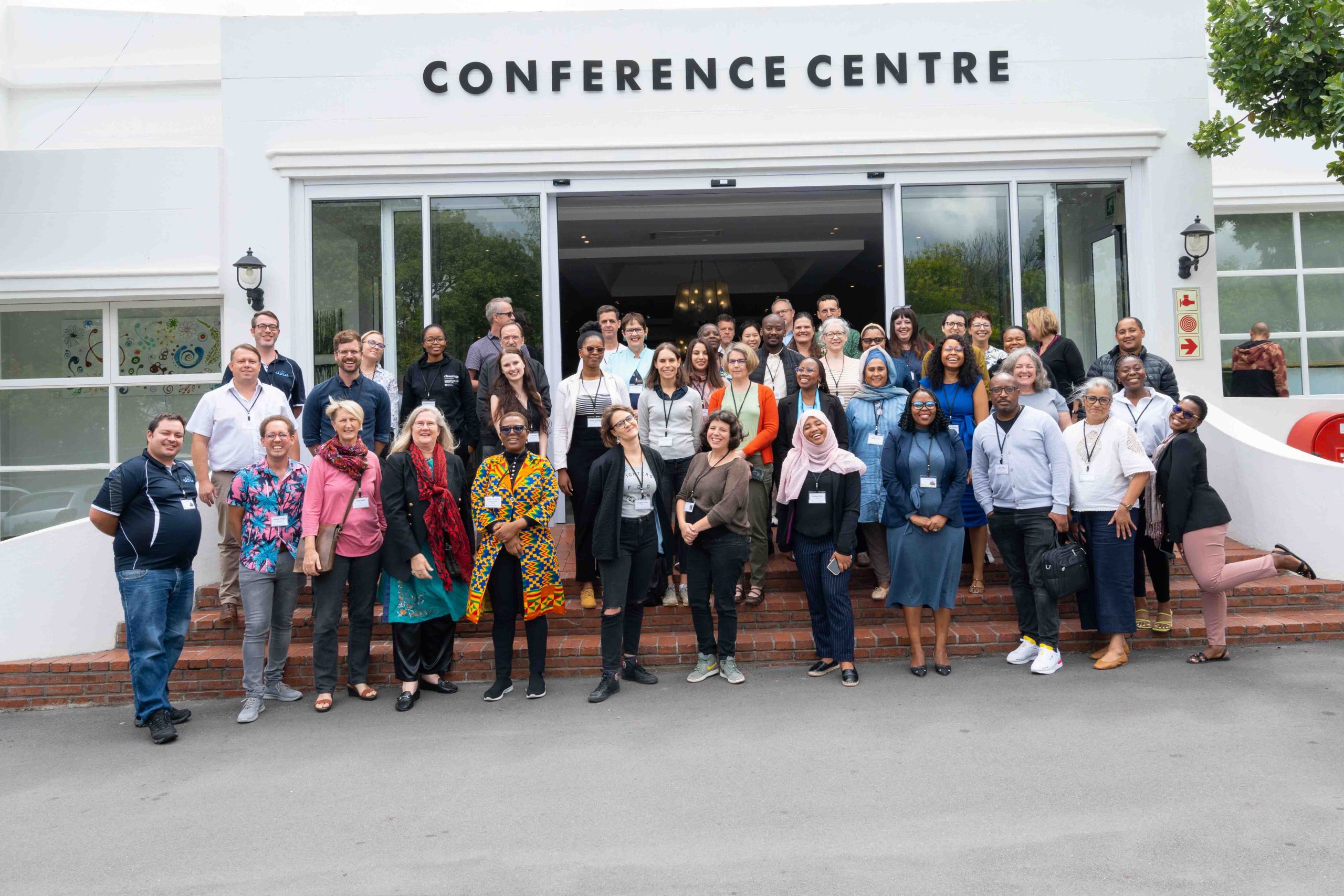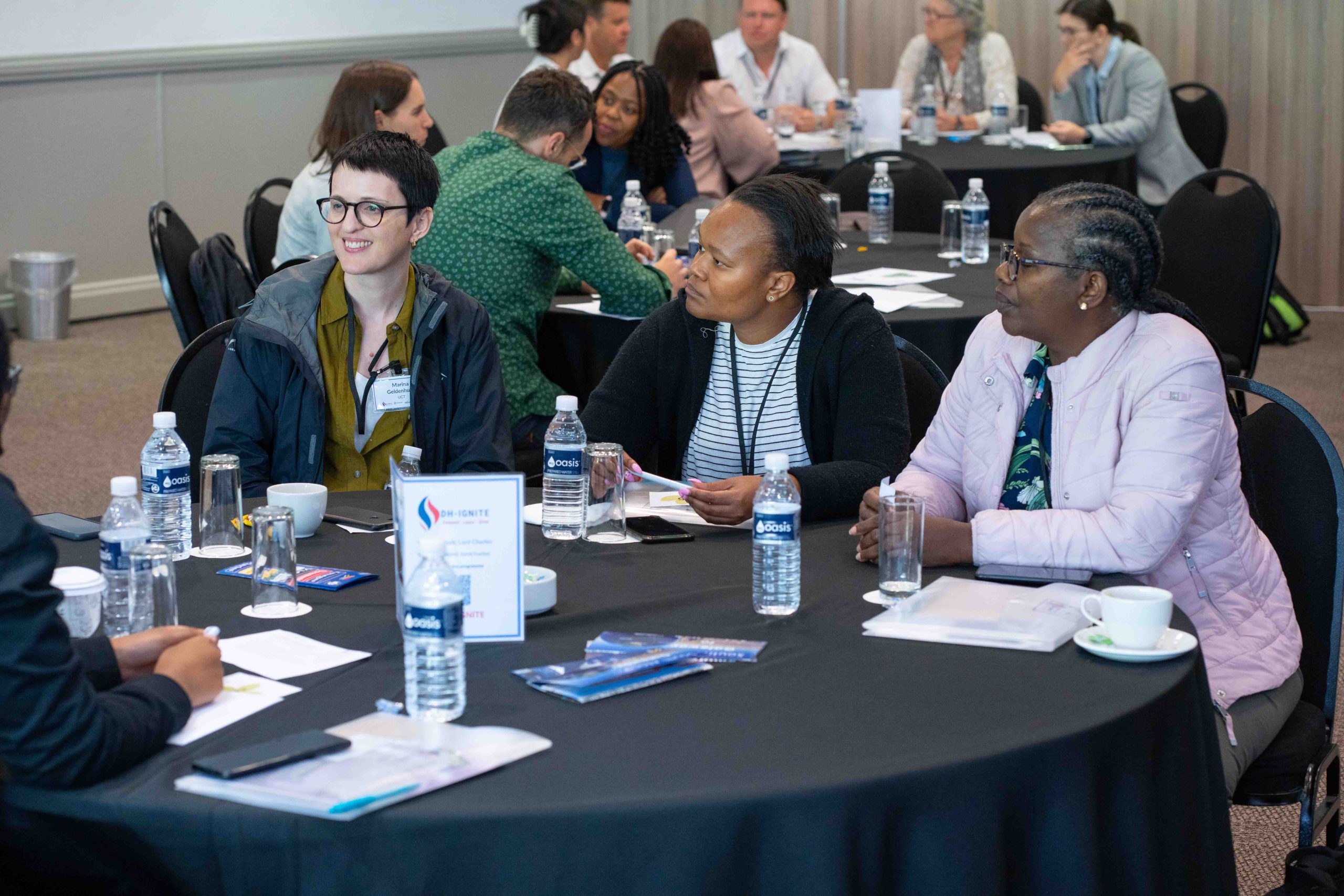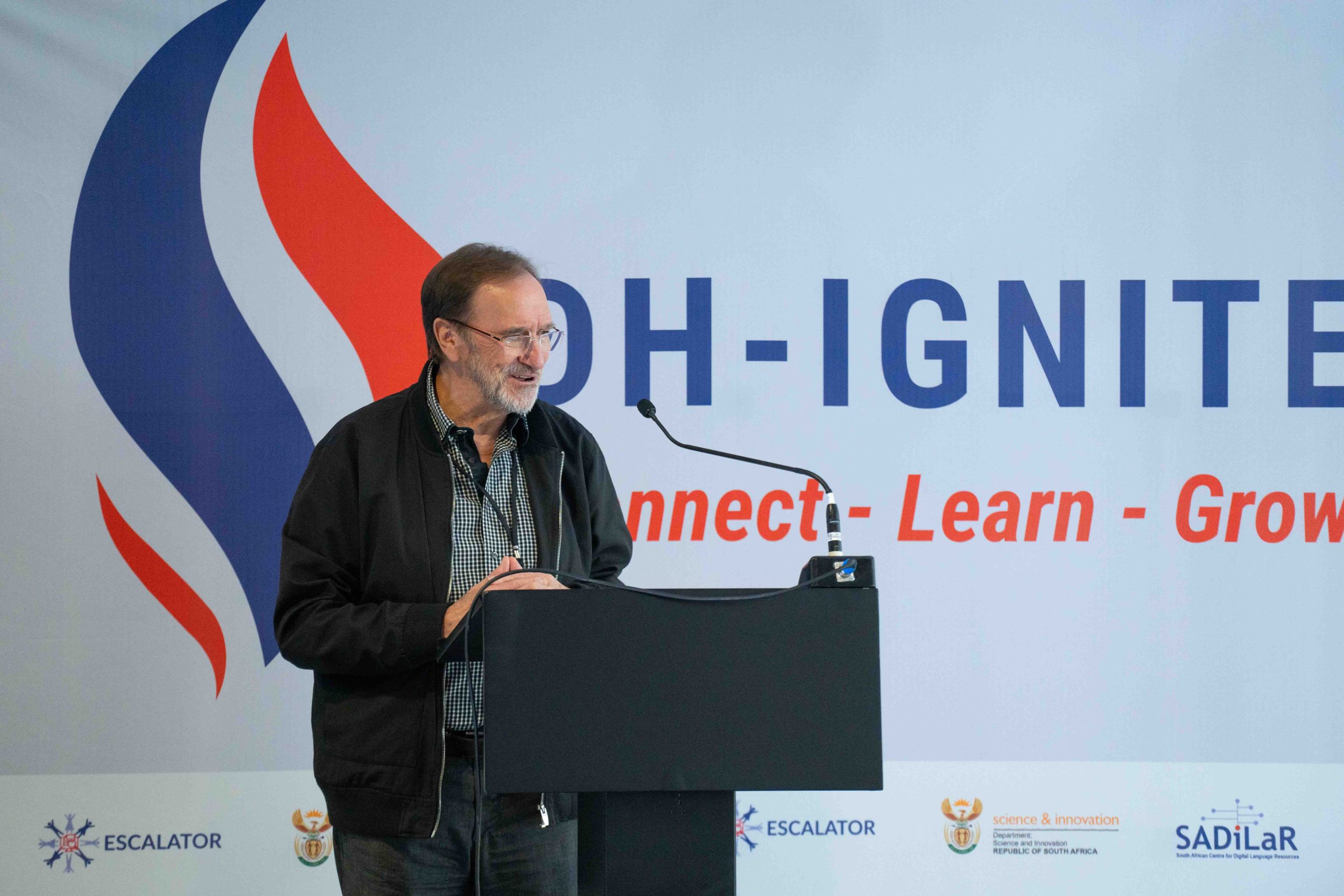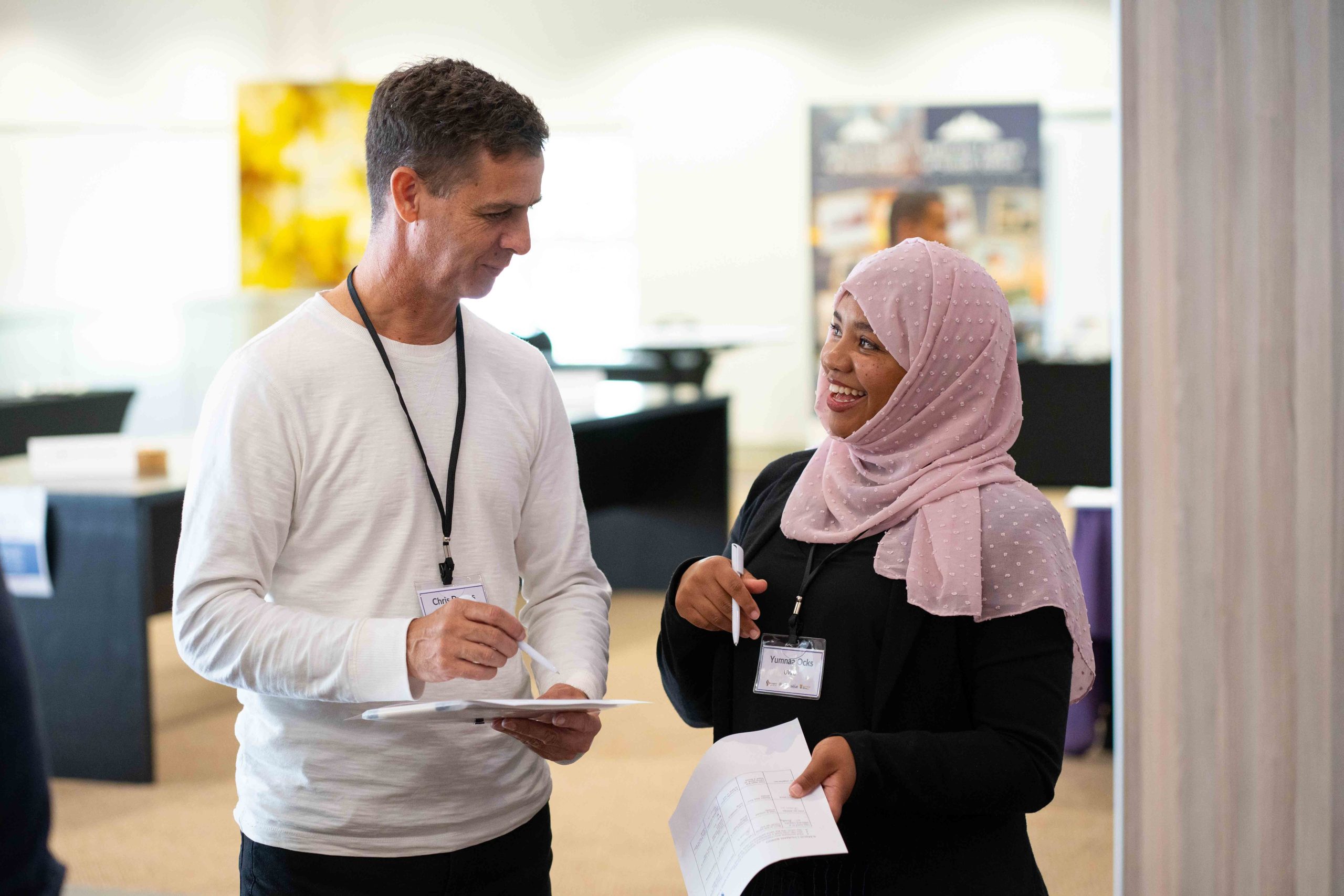“Empowering. Productive. Inspiring.” These are just some of the words uttered by participants in their overwhelmingly positive feedback, following the success of the South African Centre for Digital Language Resources’s (SADiLaR) second DH-IGNITE regional event which took place at the Lord Charles Hotel in Somerset West, from 8-10 March 2023.
Hosted by ESCALATOR, a programme funded by SADiLaR (which in itself is a research infrastructure supported by the Department of Science and Innovation’s South African Research Infrastructure Roadmap), DH-IGNITE’s goal is to build an inclusive and active community of practice in digital humanities (DH) and computational social sciences (CSS) in South Africa. The key focus is on upskilling researchers to apply computational and digital technologies to their own research and teaching.
The Western Cape event was open exclusively to staff and postgraduate students from the University of Cape Town (UCT), Cape Peninsula University of Technology (CPUT), University of the Western Cape (UWC) and Stellenbosch University (SU), and consisted of two days of presentations, discussions, lightning talks and interactive sessions in hybrid format (with recording and broadcasting via Zoom), and a third day of in-person workshops.
“After a long lockdown, it is wonderful to bring people together to share and learn about digital humanities,” says Menno van Zaanen, Professor of Digital Humanities at SADiLaR. “Digital humanities is inherently interdisciplinary as it lies within the fields of humanities, social sciences, and computing. Collaboration is very important – in-person events, like DH-IGNITE, are valuable sources of such collaborations. It is wonderful to experience the energy of people communicating in person again.”
Using technologies to enhance research
During the three days, DH-IGNITE Western Cape participants learned more about the available resources, training, and infrastructures to support digital and computationally enhanced research in humanities and social sciences.
“As we become increasingly reliant on digital technologies for nearly all aspects of life, it is vital that humanities researchers have the necessary skills and tools to critique and contribute to these technologies so they work to the benefit of society, but also to use the technologies to enhance their own research and offer greater understanding of the world we live in,” says Anelda van der Walt, ESCALATOR programme manager.
Highlights of DH-IGNITE Western Cape include Prof Justus Roux, who championed the establishment of SADiLaR, sharing insights about the value of digital tools for humanities and social sciences scholars; SU’s Dr Jonathan Schoots presenting an exciting computational research project on tracing innovation and identity in early African Nationalism with computational social science; a panel and audience discussion about resources and opportunities for learning and teaching digital and computational skills, led by Prof Kevin Durrheim from UJ Methods Lab; an interactive session on ChatGPT with Dr Errol Francke from CPUT; and a discussion on current and future developments in Digital Humanities in the Arts and Humanities, moderated by SADiLaR’s Prof Menno van Zaanen.
The lightning talks were centered around the opportunities and challenges around SA data sources, and lessons learned from doing interdisciplinary research. Of special interest was the talk by Ria Olivier, principal investigator of the Antarctic Legacy of South Africa project, about the human involvement of South Africa in the Antarctica Region and the importance of preserving data.
“There was a wonderful diversity of speakers over the two days, some of whom presented for the first time in front of an audience and contributed greatly to the value and overall success of the event,” van der Walt remarks.


Changing research perspectives
On Day 3, participants had the opportunity to get down to business with two workshops presented by Prof Heather Brookes (Chair of SU’s Department of General Linguistics) and Prof van Zaanen, respectively. In the first workshop, Brookes introduced participants to video and audio annotation with ELAN (European Distributed Corpora Project Linguistic Annotator), a tool that allows users to create, edit, visualise and search annotations for video and audio data, whereas, in the second workshop titled ‘First steps to text mining’, Van Zaanen shared some fundamental skills to get users started on their journey with text mining.
“My participation in DH-IGNITE has proven to be an enriching experience that I enthusiastically recommend to my humanities and social sciences colleagues,” Nokuthula Ndlovu, a faculty librarian at CPUT, writes in a recent blog post. “The insights gained from DH-IGNITE have provided me with enriching knowledge and skills that will help advance research in my discipline and contribute to the broader digital humanities community.”
Babongile Bidla, a Masters student in Political Studies at UWC, reports in another blog post that her experience at DH-IGNITE changed her research perspective. “Attending the event has left me with a renewed appreciation for the power of data visualisation and storytelling in communicating complex research findings. I hope to incorporate various multimedia elements into my research to help explain complex research findings and explore more digital humanities possibilities in my research.”
Visit ESCALATOR’s YouTube channel for highlights of DH-IGNITE WC.
Interested to know when DH-IGNITE is coming to you?
The next DH-IGNITE events will take place in Gauteng, Eastern Cape, the Northern and North-western regions over the next 12 months. While registration is not open yet, you are invited to register your interest to participate and receive more information when it becomes available.
(Written by Birgit Ottermann)


